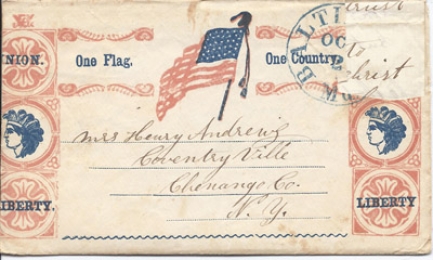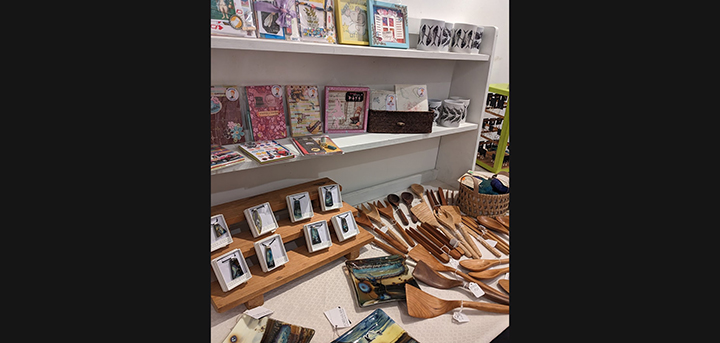Chenango in the Civil War: The Post Office and the Civil War
Editor’s Note: In conjunction with the Chenango County Civil War Commemoration Project Team, The Evening Sun will present a monthly series chronicling items of local interest during the war between the states, compiled and written by a number of local history enthusiasts.
By Vicky House
Correspondent
The Post Office and The Civil War – not two subjects you would expect to find in the same sentence. However, the U.S. Post Office (Northern) and the Confederate States of America Post Office (Southern) could have been described as a ‘war within a war.’
Long before the Civil War even began and as early as the early 1850s, the North was sending circulars and covers (what we now refer to as envelopes) containing propaganda to the South. The purpose was to discourage secession and deflate the egos of the southerners who thought a civil war would only last a very short time.
In March 1861, President Lincoln appointed Montgomery Blair as Postmaster General of the U.S. Post Office and a member of his newly formed cabinet. Blair was a difficult man and disliked by other members of Lincoln’s cabinet. However, being a stubborn, opinionated and generally disliked man, was what Lincoln felt he needed to deal with the new Confederate government.









Comments